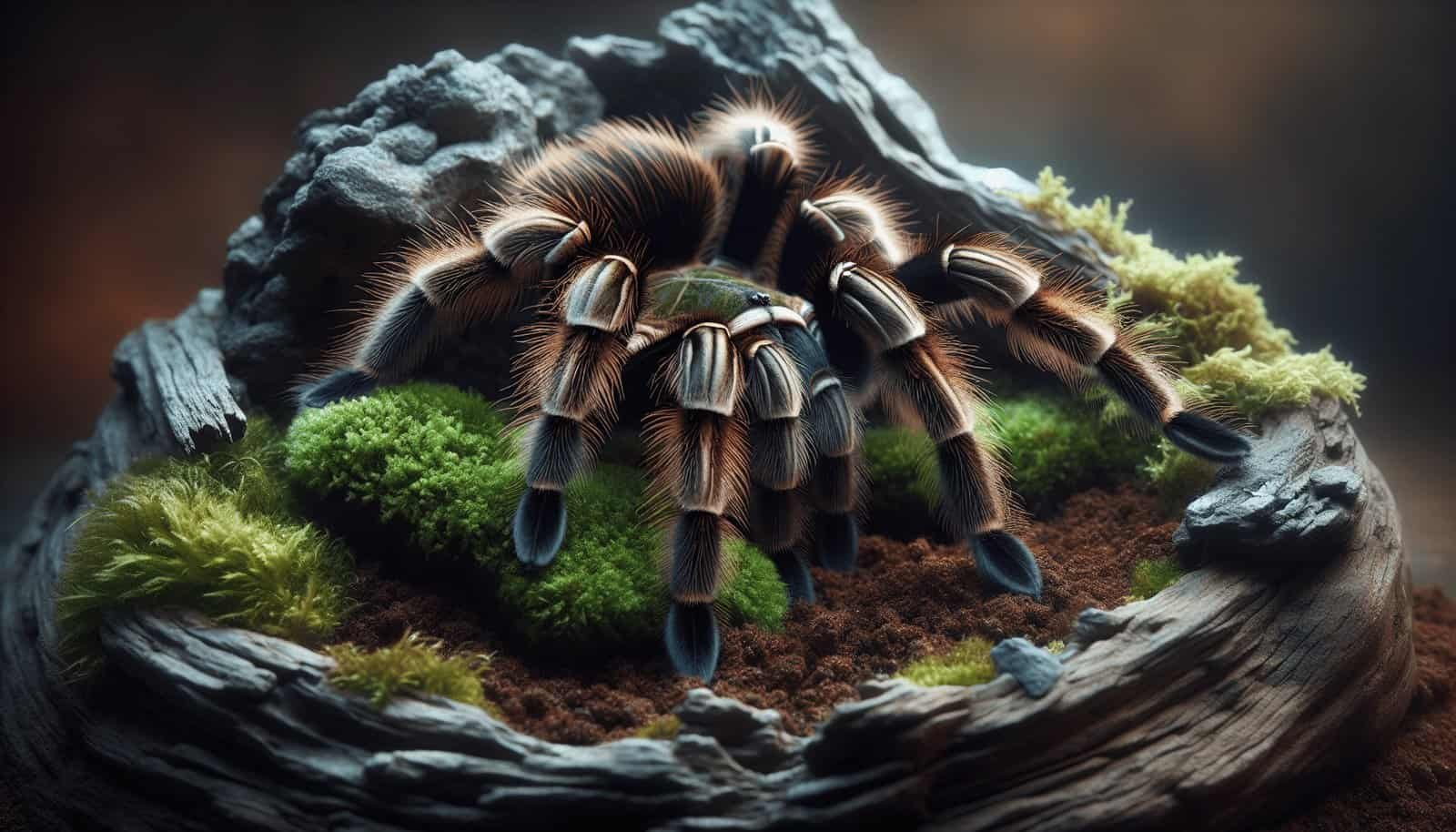Have you ever wondered how to spot and address nutritional deficiencies in your tarantula? Understanding how to properly care for your tarantula’s dietary needs is crucial for its health and well-being. In this detailed guide, we’ll walk you through the signs of nutritional deficiencies, what causes them, and how to treat them to ensure your eight-legged friend is healthy and thriving.

Understanding Tarantula Nutritional Needs
Tarantulas, being carnivorous in nature, have specific dietary requirements that differ from other pets. They rely heavily on their prey for essential nutrients. Let’s first break down the key nutritional components your tarantula needs and where they come from.
Essential Nutrients In A Tarantula’s Diet
Your tarantula’s diet primarily consists of various insects, which provide them with a range of necessary nutrients:
- Proteins: Crucial for growth and repair. These are mainly obtained from the muscles of prey.
- Fats: Important for energy storage. Insects like crickets and roaches provide good fat sources.
- Vitamins and Minerals: Needed in smaller amounts. Insects indirectly offer these nutrients through their own diets.
Identifying Nutritional Deficiencies
Recognizing when your tarantula isn’t getting the right nutrients is key to timely intervention. Here are the common signs to look out for:
Physical Symptoms
- Lethargy and Inactivity: If your usually active tarantula becomes overly lethargic or inactive, it could be a sign of poor nutrition.
- Abnormal Molting: Difficulties or irregularities in the molting process can indicate underlying nutritional issues.
- Weight Loss: Noticeable weight loss and a thin abdomen might suggest that your tarantula isn’t getting enough food or the right nutrients.
- Poor Appetite: A sudden or gradual decrease in appetite can point towards nutritional imbalances.
| Symptom | Possible Deficiency | Possible Causes |
|---|---|---|
| Lethargy | Protein, Vitamins | Poor diet variety, inadequate prey |
| Abnormal Molting | Protein, Minerals | Calcium or Vitamin D deficiency |
| Weight Loss | Protein, Fats | Insufficient prey intake |
| Poor Appetite | General Nutrient Deficiency | Low prey quality, stress from environmental factors |

Causes of Nutritional Deficiencies
Understanding why these deficiencies occur will help you prevent them. Several factors can lead to nutritional imbalances in tarantulas.
Poor Prey Quality
Feeding your tarantula low-quality prey, such as malnourished crickets or other insects, results in nutrient-poor meals. It’s essential to ensure your prey is well-fed and healthy.
Monotonous Diet
Feeding your tarantula the same type of prey continuously can limit its nutrient intake. Tarantulas benefit from a diverse diet that includes various insects to ensure a balanced array of vitamins, proteins, and fats.
Inadequate Prey Quantity
Underfeeding is a common issue. Tarantulas usually need frequent feeding, especially when they are young and growing.
Malnutrition Post-Molt
After molting, a tarantula is vulnerable and needs specific nutrients to recover. Providing high-protein prey during this time is essential.

Treating Nutritional Deficiencies
Once you’ve identified a nutritional deficiency, the next step is to correct it. Treatment generally involves adjusting your tarantula’s diet to include more diverse and nutrient-rich prey.
Improving Prey Quality
To enhance the nutritional content of your tarantula’s meals, you can:
- Gut-Loading Prey: Feed the insects a nutrient-rich diet 24-48 hours before offering them to your tarantula. This ensures the prey is filled with essential nutrients.
- Dusting Prey: Occasionally dust the insects with vitamin and mineral supplements designed for invertebrates.
Diversifying Diet
Include a variety of prey types. Here’s a simple guide to diversify your tarantula’s diet:
| Prey Type | Main Nutritional Contribution |
|---|---|
| Crickets | Protein, Fats |
| Mealworms | Fats, Proteins, Vitamins |
| Dubia Roaches | High in Protein, Low in Fat |
| Silkworms | Protein, Vitamins |
Regular Feeding Schedule
Maintain a consistent and adequate feeding schedule. Juvenile tarantulas often require more frequent feeding compared to adults.
Post-Molt Nutrition
Ensure that post-molt tarantulas receive high-protein prey to aid in their recovery. This can include offering more mealworms or dubia roaches which are rich in protein.

Preventing Future Deficiencies
Prevention is always better than cure. Implementing a robust feeding regimen can minimize the risk of future deficiencies.
Monitoring Health Regularly
Keep an eye on your tarantula’s behavior, weight, and molting process. Regular monitoring helps catch any signs of nutritional deficiencies early.
Regular Diet Rotation
Regularly rotate the prey types you offer to ensure a balanced diet. This practice helps to cover any gaps in nutrition that might occur from feeding the same type of prey continuously.
Maintaining Proper Habitat
Environmental factors can also impact your tarantula’s health. Ensure your tarantula’s habitat is clean, has appropriate humidity and temperature levels, and is free from stressors.
Consulting a Veterinarian
While tarantulas are generally low-maintenance, consulting with a veterinarian, especially one specializing in exotic pets, can provide professional guidance tailored to your specific tarantula species.

Conclusion
Identifying and treating nutritional deficiencies in your tarantula doesn’t have to be daunting. By recognizing the signs, understanding the causes, and implementing a balanced and varied diet, you can ensure your tarantula remains healthy and thriving. Regular monitoring and proactive care will go a long way in preventing deficiencies, and your eight-legged companion will thank you for it. Remember, a well-fed tarantula is a happy tarantula!